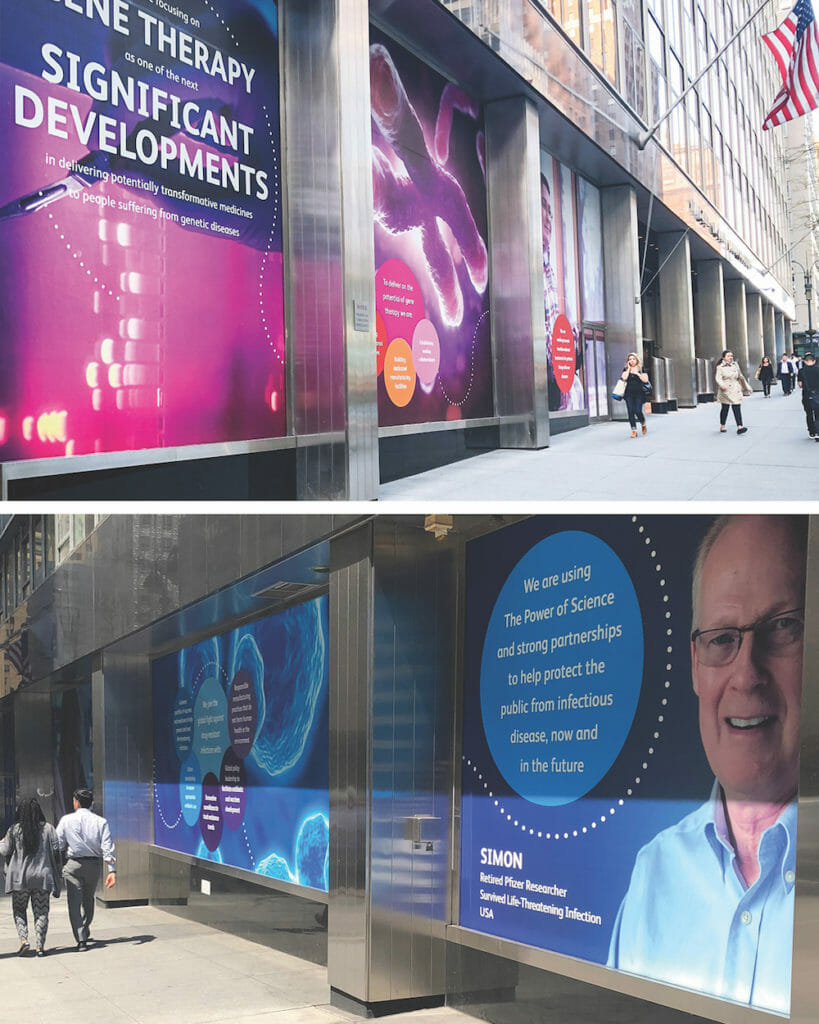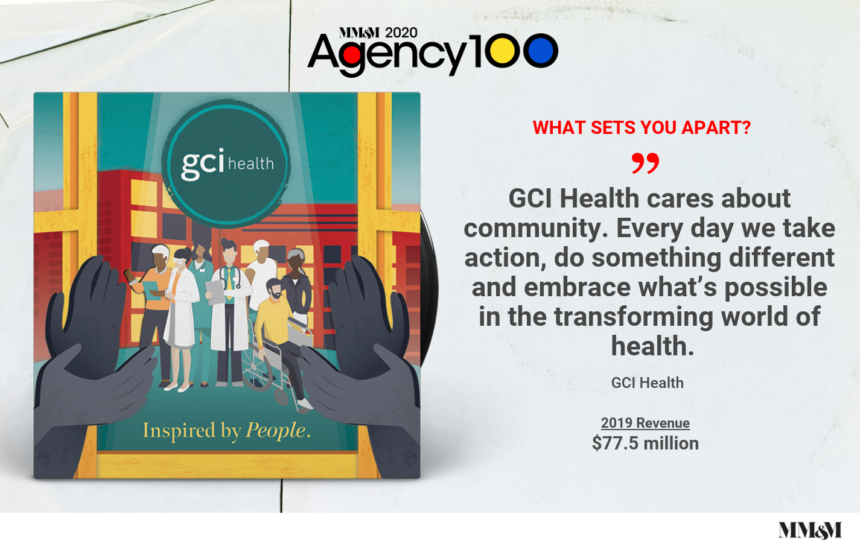Prior to GCI Health’s first Agency 100 sit-down with MM&M, global CEO Wendy Lund wrote herself a note that, she says, encompasses her company’s current mindset. “It was pretty simple: ‘Why stop growing?’”
Over the course of her 10-plus years at GCI Health, Lund hasn’t known anything else. From its roots as a nimble PR shop, the agency has evolved into one of the industry’s best-rounded marketing and communications organizations. It’s also one of the most in-demand, with a client roster said to span big pharma (Merck, Pfizer), A-list biotech (Bluebird Bio) and pharmacy retail (Walgreens).
The agency does research on women’s health issues alongside media partners such as Redbook and Prevention. It advocates on behalf of nonprofits such as the Lancet Commission on Malaria Eradication and the Educational Commission for Foreign Medical Graduates. GCI Health gets around, in the best way.
“I love working with pharma companies and they’re so important to us, but you have to span the entire spectrum of healthcare — biotech, startups, medical technology firms, health IT,” Lund says. “One, we want to be part of the broader health environment. And two, our staff loves it.”
That staff expanded in 2019, from 175 at the start of the year to 205 at the end of it. GCI hired Trey Watkins away from the United Nations to serve as SVP, global public health and corporate responsibility (“he’s really coming in handy now,” Lund quips) and bolstered its digital team with the additions of EVP, digital and integrated marketing Tyler Pennock and SVP, digital Natalia Forsyth.

“We rounded out all the edges. Virtual communications are a thing of the now,” Lund adds.
Revenue surged in turn, from an MM&M-estimated $62.5 million in 2018 to an estimated $77.5 million in 2019. “In most ways, we’re 10 times the size of what we were 10 years ago,” Lund says.
With growth, of course, comes the high-class problem of managing it. The agency’s new Inspired By People platform, which encompasses internal and external audiences alike, is envisioned as part of the solution. “I’m very concerned about our culture and I’m diligent about not losing sight of why we’re here,” Lund stresses. “But that’s why we’re always kind of looking around the corner. If we can’t do something, we’ll figure it out.”
In the months ahead, look for GCI Health to expand deeper into specialist therapeutic realms, with Lund pointing to anemia, kidney disease and urology as possible targets. “We love working with specialist companies, because we’re specialists. The ethos is so lined up,” Lund says.
At the same time, the agency is aware it will have to do its share of hand-holding in the wake of the COVID-19 disruption. “The stakeholders we work with today are absorbing things so differently than they did two months ago,” Lund says, adding she’s confident her company is up to the challenge.
“This is when you get tested: Do you really have the culture you say you do? At the end of the year, when I look back I want to think, ‘We did this right.’”
The best marketing we saw in 2019…
Get Up Alarm Clock, from Eli Lilly and Area 23. The creativity of designing a device to project personal messages of strength from family and friends around the world onto a patient’s ceiling to help them not just wake up but feel strong enough to get up and face each new day shows how the power of communications can make a significant difference. — Wendy Lund
From the June 01, 2020 Issue of MM+M - Medical Marketing and Media








